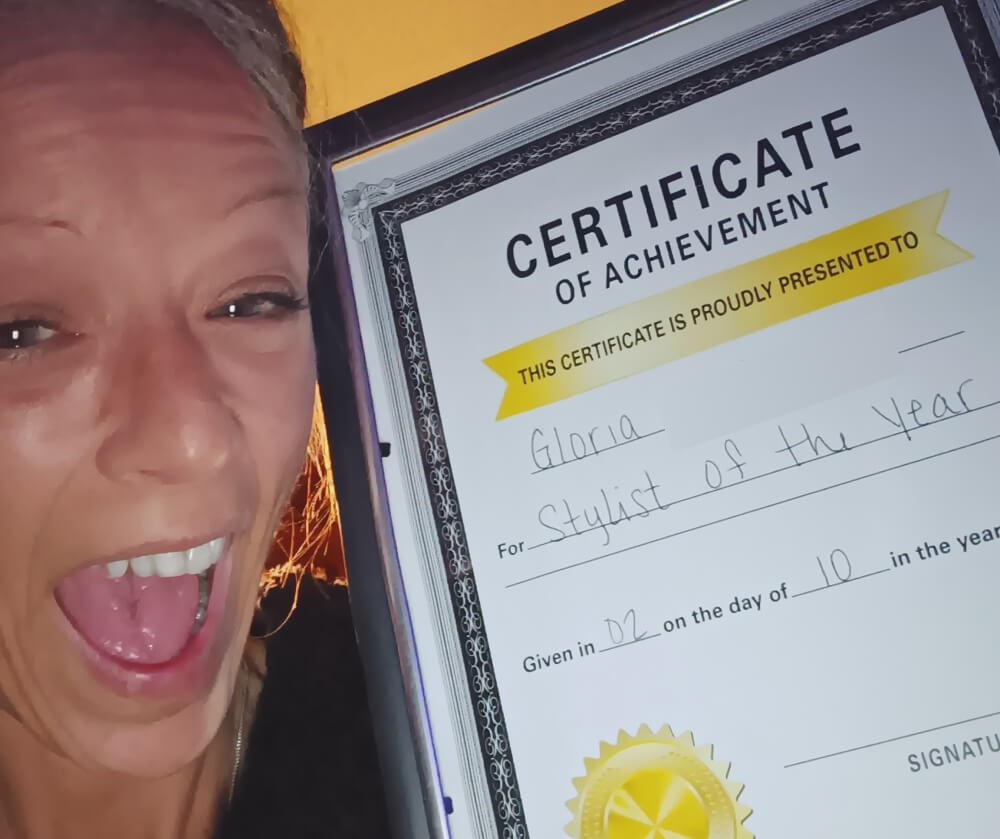Tawny shares her experience with improv exercises and the lessons they taught her for personal growth and recovery.
As I entered my second year of sobriety, I decided to follow my passion for personal growth. I chopped my hair off, enrolled in Spanish classes and sketch writing classes, and even went on a couple of dates (that’s a pretty big deal for me, but more on that next time). This week, I continued down the path of new experiences when I took my first improv class. I’d flirted with the idea of improv for a while, but the thought of submitting to that amount of vulnerability scared me to death. I used to hide my vulnerability by binge-drinking a ton of whiskey, but this year, I’ve decided to face it head-on. I found a class at The People’s Improv Theater called ‘Improv Your Public Speaking.’ I hesitated but finally signed up for the February 13th class as a Galentine’s Day gift to myself.
On my way to the class, I was sick to my stomach with anxiety. As soon as I got there though, I saw the room filled with anxious people just like me. This helped. A lot. I was one of the 11 people there. There were a mix of genders. ages, ethnicities, cultures, and professions—all united by our fear of public speaking.
The three-hour class consisted of several improv exercises that taught us some techniques for any public speaking scenario. These exercises ended up teaching me quite a lot about myself as well. Here’s what I learned:
1. Confidence is not a goal.
The class began with us sitting in a circle of chairs, facing one another. Our instructor, Taren, asked each of us what we wanted to achieve from the class. I told the group that I was a blogger who wanted to transition into vlogging and eventually write a book. I also said that I was looking to find confidence in my voice as a speaker, and grow from being the woman who hides behind her laptop. Her response was just what I needed to hear: “Confidence is not something you achieve. It’s a feeling or a state of being that you get from practice. Confidence is mostly conditioned on your relationship to yourself and how much trust you have in yourself. If you trust yourself, you can be confident in any situation.” – Taren Sterry
2. My voice hides behind sarcasm and negativity.
The basic rule of improv is, “Yes, and …,” which means that no matter what your prompt is or what your partner is saying, you accept it as true and keep building from there. Throughout these exercises, I learned that when put under pressure to “Yes, and …” someone, I often resort to sarcasm and negativity.
For example, my improv partner and I were asked to talk about, “that time we went camping together.” (This obviously never happened in real life, so we … improvised!) We talked about camping, and then that turned into him wanting to go surfing. I told him, “But you fall every time you try to surf.” And he replied with something along the lines of “But I keep trying.”
If I had actually “Yes, and …”-ed him, I might’ve said something like, “That’s why I married a surfer,” or, “You always look great on that surfboard!” Instead, I shut down his idea and the rest of the conversation took a different turn.
Most people may not see this sarcastic, negative side to me because I rarely embrace it. I can edit my blog posts, social media posts, texts, emails, etc. … but there’s no editing in real life.
3. I often push responsibility onto others.
One exercise taught me that when I have to rapidly make a decision, I instinctively hand that decision to someone else. I see this in my daily life with simple activities like finding a place to eat with a friend. In my mind, I think I’m being the chill, laid-back friend who’s down for whatever, but in reality, I’m making someone else come up with an answer.
4. I overanalyze.
I get stuck in my head. I worry about looking perfect, writing perfectly, speaking perfectly, etc. In improv, there’s barely enough time to think, let alone time to overthink. In improv, I can’t overanalyze what my response will be. I can’t obsess over other ways I could have responded. Improv encourages me to be completely present.
5. I talk about tacos … a lot.
When I was asked to give a prompt, my mind immediately went to tacos. After saying “tacos” twice, I had to actively try to not think about tacos. Then my mind went to sex. Then sunshine. Then cats.
It was a night of spontaneity, trying not to think about tacos, and giving a two-minute monologue (*cringe*). I laughed my ass off and had an awesome time. Taren’s advice helped me understand that confidence isn’t something that can be crossed off my to-do list. It’s something that comes from practice and having a solid relationship with oneself. Her advice humanized my perception of confidence.
The PIT’s motto is ,“Follow the Fear, Find the Fun.” My old motto was something along the lines of, “Swallow the Fear, Chase It with Whiskey.” I think I’ll follow the fear and find the fun in another improv class—hold the whiskey.








